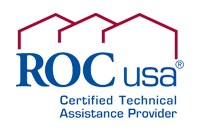
Are we asking too much of bankers?
By Community Loan Fund staff
Before a commercial loan officer makes a loan, he or she needs to feel confident that the borrower has the ability to repay it. Their role as providers of "least-cost" debt means banks have to be selective and avoid losses.
Lately, as I've heard business owners bemoan their inability to get loans, I've found myself defending bankers' business-lending practices, or at least trying to put their role in context.
Before a commercial loan officer makes a loan, he or she needs to feel confident that the borrower has the ability to repay it. Their role as providers of "least-cost" debt means banks have to be selective and avoid losses. That's particularly true in today's economy, when the market is, at best, uncertain, and many businesses have had a couple of tough years.
So when a banker says your collateral is insufficient to support your loan, realize that banks need evidence of a secondary way of being repaid. The bank's viability depends on it.
Also, remember that banks are regulated by the government. If they don't insist on sufficient collateral for their loans, regulators will slap their hand (and they should, because, among other things, the government insures bank depositors up to $250,000 through the Federal Deposit Insurance Corp.).
There are also times when the loan size is so small that it would cost the bank more to make and monitor the loan than it would earn back in interest.
I sympathize with the frustrations of business owners, but banks can't provide for all the capital needs of small businesses. When the business has a profitable track record and sufficient collateral to cover the loan, banks can deliver. But if the business has had recent losses, or the loan request exceeds its collateral, it may require a lender/investor who can do an in-depth analysis of the management team and who will cover the probability of future losses by charging more for the loan.
One byproduct of tighter bank lending is that alternative lenders are expanding their financing options. These lenders are more risk-tolerant, but also are more expensive. The good ones look beyond the business's financials, evaluate its potential, and can extend capital when they believe in the business.
So appreciate your banker for what he or she does best provide lower-cost capital. And if you need capital beyond what your banker can provide, ask for a referral to a lender who make loans that are too small or too risky for banks. But don't ask a bank to be something it can't be.















